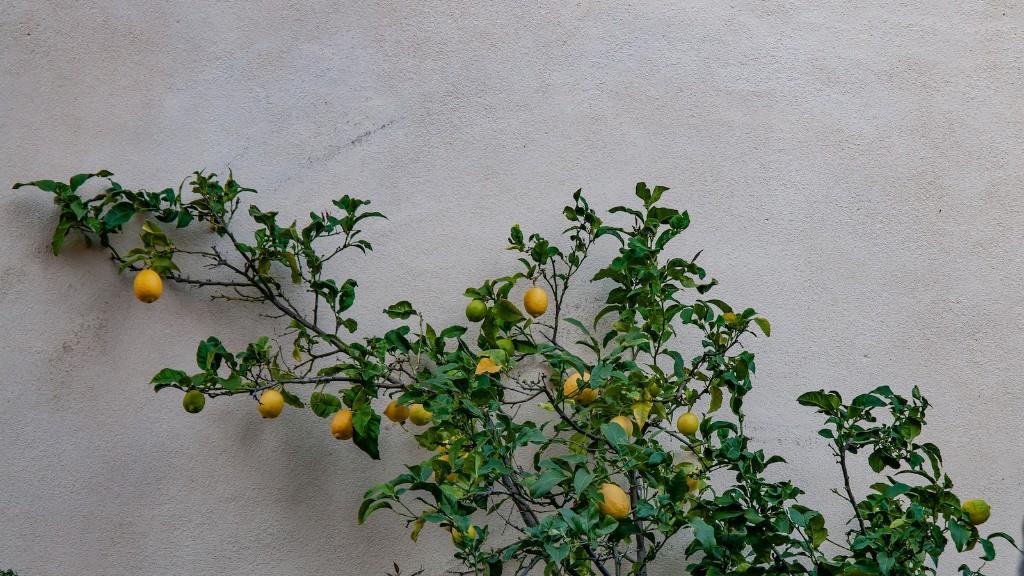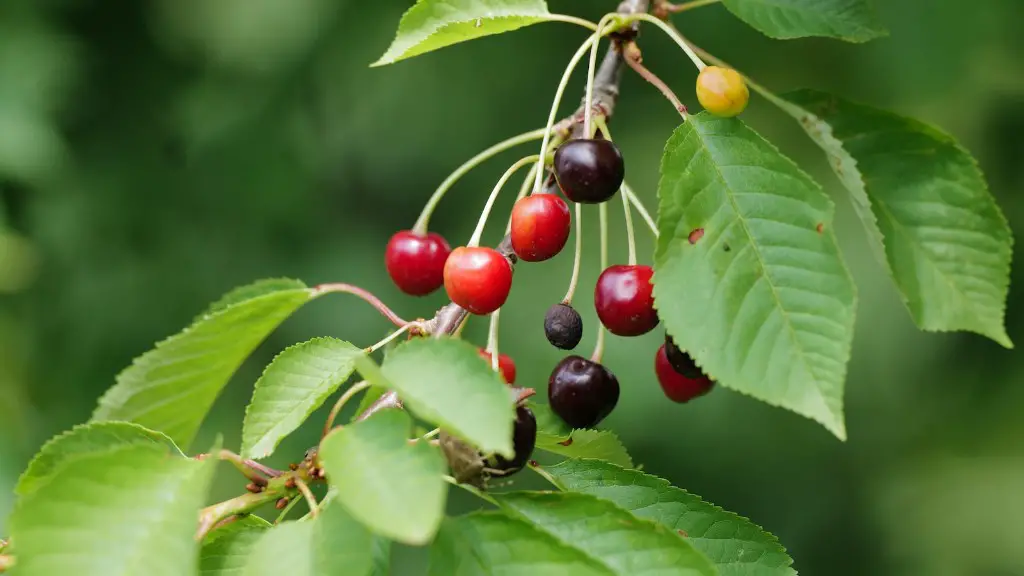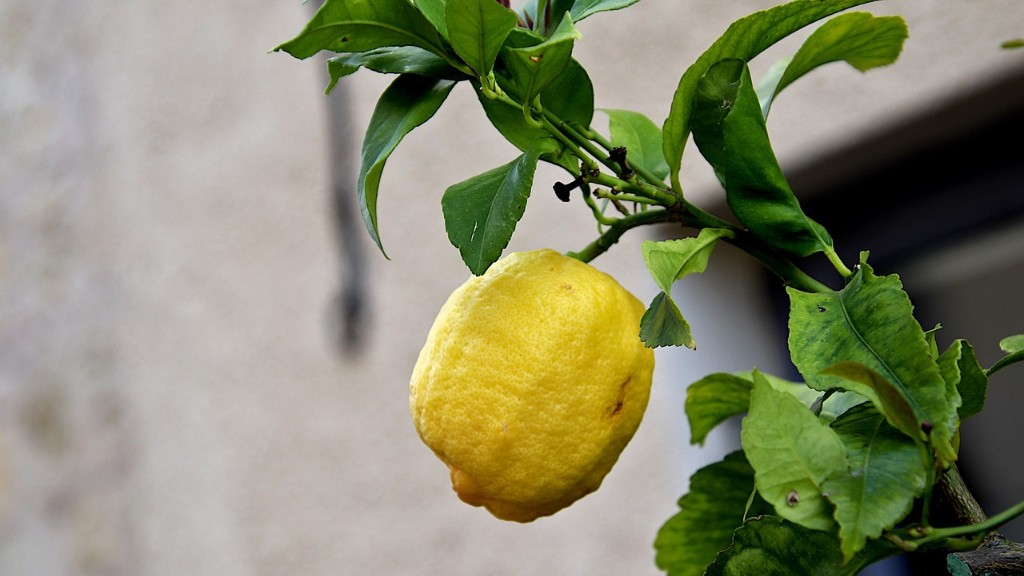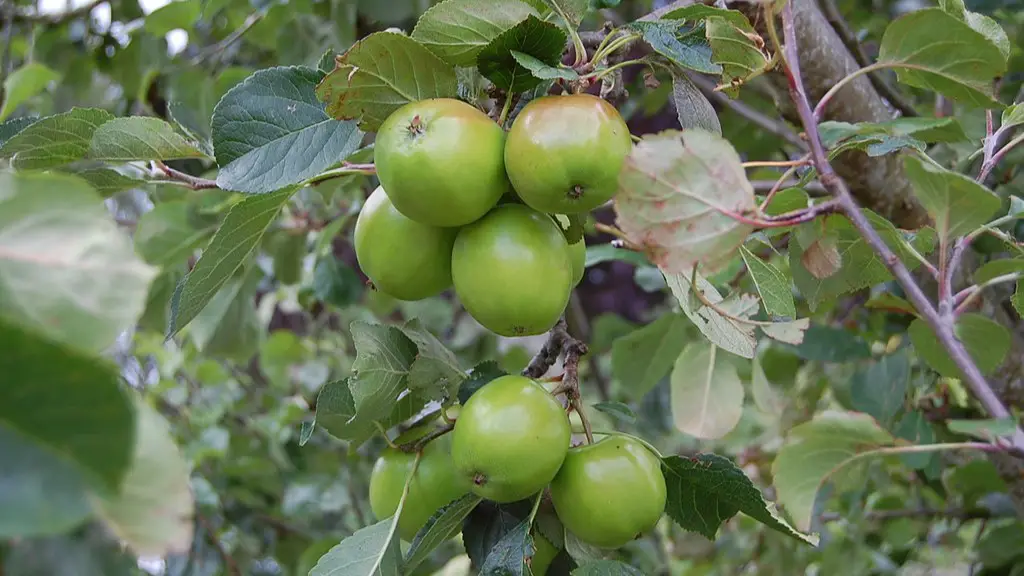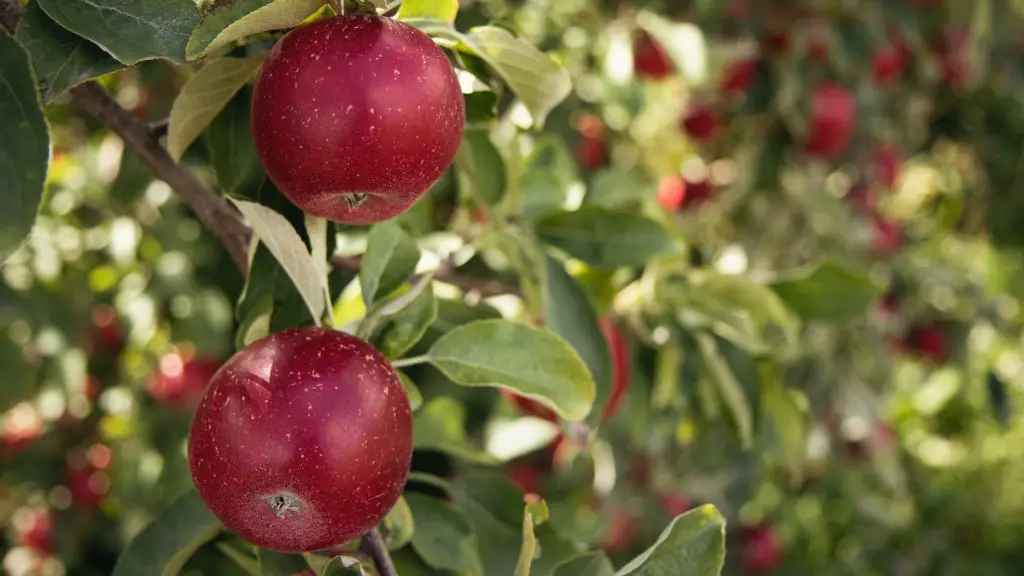When it comes to finding a small lemon tree for purchase, there are a few options. To begin with, one of the most common places to shop for small trees is an online nursery site. Not only do these sites offer a wide selection of trees, but they also don’t require any physical contact with the plants. For example, sites such as Arbor Day Foundation, Nature Hills Nursery, and Plantables all carry a variety of different lemon trees small enough to fit in your garden or space.
If ordering online isn’t an option for you, there’s still the option of shopping locally. Most nurseries, farm stands, and even some home supply stores will carry a selection of small lemon trees. Just keep in mind that they aren’t always in-stock so you may have to call ahead to see if they have any available. Additionally, many of these stores will have a variety of different lemon trees in larger sizes, so you may have to look around to find a smaller one.
Another excellent way to find a small lemon tree is to shop at a farmers’ market. These open-air markets typically have a wide selection of plants and other produce. Plus, the experts running the stand will often be able to provide some helpful advice about which type of lemon tree would be best for your region’s climate.
Finally, if you’re able to find a local plant nursery that sells it, you may be able to purchase a tree already potted in soil. This allows you to avoid having to repot the tree after you bring it home, reducing the risk of shock or other issues associated with it. A small lemon tree that’s already in soil should cost roughly the same as one that’s sold as a bare root.
Comparison Shopping for Small Lemon Trees
When buying a small lemon tree, it pays to shop around. Take the time to compare prices between different nurseries and stores to ensure that you’re getting the best deal. Additionally, the type and variety of lemon tree you select will also have an impact on the price, so this is another factor to consider. If you’re limited in where you can buy, try calling ahead to inquire about their selection and pricing before visiting. Doing this can save you time, hassle, and money in the long run.
Another way to compare prices is to search online. While local nurseries will likely have the best deals, it’s always a good idea to compare prices before making a purchase. Sites such as Plantables and Arbor Day Foundation may offer discounted prices or other benefits such free shipping. It’s important to keep in mind, though, that such sites typically ship their plants in pots and you will have to repot the tree upon its arrival.
It’s also important to note that the price of a small lemon tree isn’t the only factor to consider. You also want to look for trees that are certified for organic growing, as this will ensure that you’re getting the highest quality plant. It usually costs a bit more, but the quality of the tree will be much better than standard plants.
Make sure to do some research before making a purchase. Check the website of the nursery or store you plan to buy from and read through reviews from past customers. This can give you an idea about their customer service, the quality of their products, and their overall reliability.
Where to Plant a Small Lemon Tree
When planting a small lemon tree, it’s best to select a spot that will receive several hours of direct sunlight each day. Lemon trees thrive in warm, sunny locations, however they can also tolerate partial shade. Wherever you decide to plant your tree, you’ll also want to make sure that it has access to water. So, choose a location where you can easily water it on a regular basis.
Once you’ve identified a spot for your small lemon tree, it’s time to create the ideal growing environment. Prepare the soil by adding compost, manure, or other organic materials to increase fertility and texture. Consider adding a layer of mulch to retain moisture and keep the soil temperature steady. Also, if you’re planting in a pot, make sure it’s filled with well-draining soil.
Although small lemon trees don’t necessarily require any extra support, you may want to consider staking it. This will prevent it from being damaged by strong winds or other elements. Stakes that are made specifically to support trees are widely available and some even come with a protective collar to keep it from being harmed by the stake.
How to Care for a Small Lemon Tree
Caring for a small lemon tree is fairly straightforward, but it does require some patience and attention. Taking the time to properly care for your tree on a regular basis will ensure that it thrives for years to come. Here are a few tips to keep in mind when caring for a small lemon tree.
The most important thing to remember is to water it regularly. Lemon trees prefer deep, infrequent watering in the summer months, so make sure to give your tree enough water to reach its roots. During the winter months, the tree requires much less water, so it’s important to be mindful of when to water it.
Fertilize your tree every couple of months to ensure healthy growth and development. Lemon trees do best with organic fertilizers such as fish emulsion, kelp, or seaweed extract. You can also add a slow-release fertilizer at planting time, to provide the tree with a steady supply of nitrogen.
Pruning is also important when it comes to caring for your small lemon tree. Pruning should be done to improve the health, shape, and size of the tree. The best time to prune is late winter or early spring, and be sure to use clean cutting tools for the job.
Finally, pest and disease prevention are key to caring for your small lemon tree. The best way to do this is to regularly inspect the tree for signs of damage or infection, and to be proactive about removing any damaged or dead branches or leaves. Insect repellants and antifungal sprays can also help prevent pests and diseases, as well.
Harvesting Lemons From a Small Tree
When it’s time to harvest your small lemon tree’s fruits, there are a few things to keep in mind. First of all, it’s best to wait until the fruits are fully ripe before harvesting, as this will guarantee the best flavor. To determine if the lemons are ripe, check their color and texture. Ripe lemons should look bright yellow and feel slightly firm.
When harvesting, be sure to use clean, pruning shears or scissors to cut the fruit from the tree. Also, be mindful not to pull the fruit from the tree, as this could damage the branch or stem. Finally, don’t forget to leave some of the lemons on the tree, as this will help ensure that your tree produces more fruit in the future.
Tips for Preserving Lemons From a Small Tree
Once you’ve harvested your small lemon tree’s lemons, there are several ways to preserve them for future use. Lemons are naturally highly acidic, which makes them an ideal choice for preserving. Lemons can be frozen, dried, and canned, giving you a variety of options.
Frozen lemons can last up to six months in the freezer. To freeze them, wash them and cut them into wedges. Place the wedges in a single layer on a baking sheet and freeze until firm. Then, transfer the wedges to a container or bag, label it with the date, and store in the freezer until you’re ready to use them.
Dried lemons can be used as a seasoning in a variety of dishes and can last for up to a year. To dry them, wash and slice the lemons and place them on a baking sheet. Dry them in an oven preheated to the lowest setting and bake for 2-3 hours, or until the lemons are completely dry. When the lemons are finished, store them in an airtight container.
Alternatively, canned lemons can last up to five years in the pantry. To can lemons, wash and cut the fruit and place them in a sterile jar. Add the oduction of your small lemon tree, it’s important to begin with proper care and planting techniques to ensure that your tree is healthy and thriving for many years. With some research and dedication, you’ll be enjoying fresh, ripe lemons from your own small lemon tree in no time. desired amount of sugar, lemon juice, and water and fill the jar to the lid using a ladle. Place the lid on the jar and process in a water bath for 20 minutes. Once finished, you’ll have delicious canned lemons for later use.
Conclusion
When it comes to the pro
